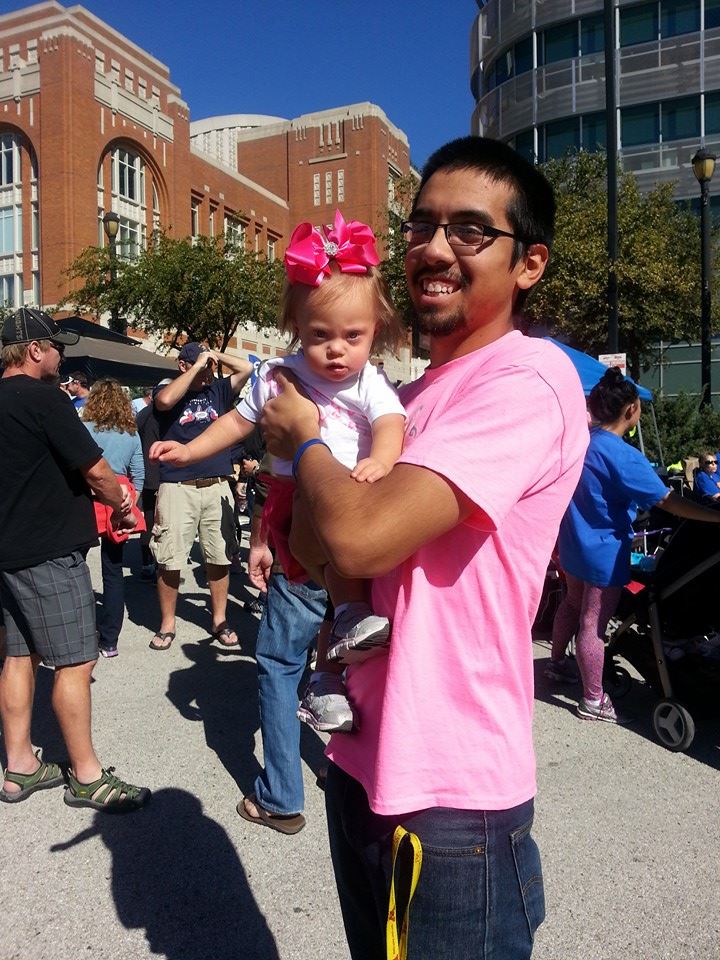Use of word “retarded” detrimental to those with mental handicaps, needs to no longer be used in modern conversations
Words are funny. A phrase or term that is light-hearted and jovial to one person may sting like iodine to someone else. It’s all a matter of perception. With some words, like the word “retarded,” there is no gray area.
It is better left unsaid.
When my cousin Evelyn was born with Down syndrome three years ago, I honestly didn’t know how to react. No one in my family had ever been mentally handicapped and I wasn’t sure how to broach the subject. Was I supposed to be happy and hopeful that Evelyn would be as healthy as possible? Or was I supposed to be worried about her future?
After I held her in my arms for the first time, those fears were assuaged. My heart swelled with love and pride as I held on to the closest thing to a perfect human.
As she’s grown, one thing has become evident: Evelyn is definitely different from other kids, but not for the reasons you may think. She is the most headstrong and demanding girl I’ve ever known — and she can’t even talk yet. If she doesn’t get her way immediately, rest assured that she will let you know. She’s also confident. Her brother may be two years older than her, but she doesn’t let that stop her from letting him know who the real boss is from time to time.
Evelyn immediately has anyone who meets her wrapped around her little fingers, and the best part is she knows it. It’s impossible to not love this little girl. Still, for Evelyn and millions of others who are mentally handicapped, the qualities that make them human aren’t enough to make them immune from words like “retarded.”
The literal meaning of the outdated word characterizes those who are slow in development, but it is used colloquially to describe something or someone as stupid or foolish.
Unfortunately, when people use the word “retarded” in this fashion, they don’t realize the pain it causes Evelyn, people like her and those that love them. For years, “retarded” has been used to dehumanize those with Down syndrome and other disabilities.
People may think I’m just another liberal journalist who is trying too hard to be politically correct, but I’ve seen first hand the pain that using the word causes. About two years ago, I was at a Christian camp when a grown woman said one of the counselors, who was being silly to entertain the campers, looked “like a retard.”
A chill went up my spine as I looked over to my left, where Evelyn’s father — who was one of the leaders of the camp — sat slumped in his seat. He didn’t look angry or disappointed; he just looked exhausted. He’d had too much experience with a word that equates idiocy with Evelyn.
The woman who said this didn’t know Evelyn has Down syndrome, and I doubt she would have used such language if she did. The problem is there are so many other people who just don’t seem to understand or care about how hurtful this word is.
It’s almost an everyday occurrence that I hear it from people who are using it lightheartedly, but have no idea how ignorant and vicious they sound. Every time I hear that word I think of Evelyn and how easy it is for someone to make her feel inferior.
Evelyn’s not at the age where she can understand how bigoted and heartless people can be, so luckily she hasn’t had to deal with being called a “retard,” and I pray she never has to. What I fear most, however, is that her peers will ostracize her and treat her differently just because of how she was born. It’s intolerance at its most basic, frustrating level and it’s encouraged, whether consciously or not, by use of the word “retarded.”
“Retarded” creates a sense of exclusivity to those who don’t have a mental handicap and paints those who aren’t “normal” as inferior. It discredits all of the extra work and hardships that people with Down syndrome, who often go on to lead fully functioning and active lives, have to go through just to keep up with everyone else.
“Retarded” is archaic, ignorant and it must be silenced.
October is Down syndrome awareness month. Not everyone knows someone with a mental handicap, but I’m sure everyone knows someone who is affected by it. Starting this month, think about them before you say, “retarded.”
Evelyn is loud, sassy, hardheaded, smart, beautiful and strong. But more than anything, she’s brave. She is braver than I have ever had to be just to be herself in a world that has grown accustomed to treating people like her as second-class. As she continues to blossom and grow, I know she’ll handle all of the challenges thrown her way with grace and strength. I can only hope that I grow up to be like her one day.
Evelyn isn’t “retarded.” She’s a human, just like the rest of us. It’s time we stop using labels that say otherwise.






